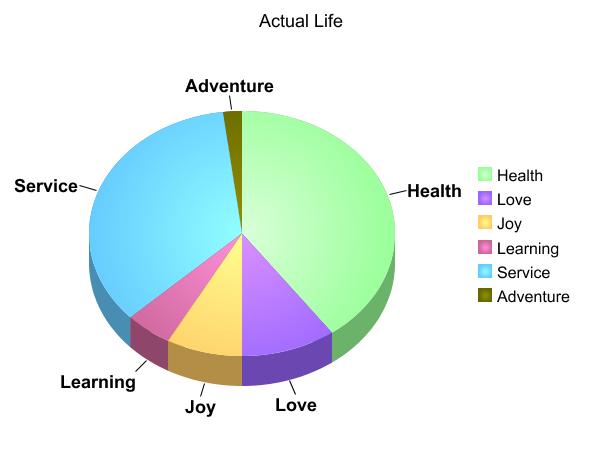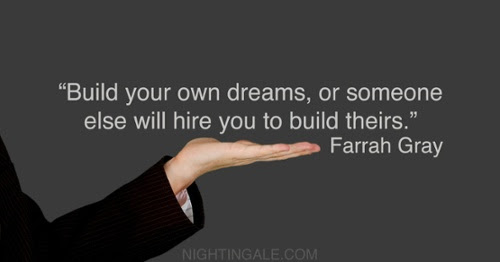We’re each given a limited amount of time on this earth. Life is a wonderful gift, and each moment is so precious; furthermore, our time here can end at any moment. We make plenty of plans for next week, next month, and years from now, but none of us really know if we’ll still be here to enjoy them. Considering this fact, why do people work? Should the best years of our lives be spent saving and investing to prepare for a comfortable end?
A few important authors have given this a lot of thought. Let’s look at how our time is being monopolized, some of the reasons we submit ourselves to time monopolies, and investigate solutions these authors can offer us.
If your time here was coming to an end next week, how would you feel?
Personally, I’d feel as though I should have spent less time at my job. Where do I spend the most of my waking life? At work. The contributions I’m making are great and satisfying; though that hardly makes up for the time I spent there. I want a life of adventure, excitement, joy, abundance, and contribution, so it seems silly to settle for a job that gives me a lot of contribution and satisfaction, and just a little of the rest of those key ingredients of a good life.

If you count the amount of time I’m preparing for work, going to work, at work, and thinking about work, that’s a massive chunk of valuable time monopolized by a single area of the spectrum of life’s opportunities. At the same time, I spend a surprisingly small amount of time doing the things that make me happiest. I don’t invest nearly enough in activities that give back the greatest amount of those of life’s gifts I enjoy most. Why the disproportion?
Here’s a list of life’s gifts I appreciate most:
- love: spending time with family and closest friends;
- joy: having fun in a new or known activity, enjoying nature, relaxing;
- health: cooking and eating, outdoor activities, sports, sleeping, meditating;
- adventure: traveling, trying new things, learning new skills;
- learning: deepening my knowledge, expanding my awareness, becoming conscious of new potential;
- service: contributing to a worthy cause, giving to others, teaching; etc.
Do I spend enough time in each of these activities? Or, a better question: why would I spend my time doing anything else? If these are the activities I cherish most, it seems silly to spend my priceless moments of life doing anything that isn’t on that list. Obviously, it’s not an exhaustive list; but if I can’t classify an activity under those top priorities… why bother doing it?
In my ideal life, the proportion of time I’d spend on each of these categories would look something like this:

This represents the bare minimum of each, because there would obviously be plenty of overlap (ex.: I’d be doing a lot of the “joy” and “adventure” activities with people I love, so that time is doubly valuable). If an activity doesn’t fall under any of these categories, that would call for a serious consideration of whether it’s worth doing.
This is an eye-opening exercise, particularly when I compare it to how I’m actually dividing my time, on average (again, disregarding overlap):

Where do the essentials like cleaning, shopping, etc. fit into this equation? I nested them under one of these categories based on why I was doing each (ex.: cleaning went under health, because I feel a clean environment contributes to mental and emotional health).
What would your “ideal time” chart look like?
Work and service is certainly valuable; we should all give back to the community that surrounds us, and contribute our skills to making the world a better place. Time spent in the workplace is both an investment in others and an investment in ourselves, because—besides making us feel warm and fuzzy inside—providing service to others gives us our livelihood and puts money in the bank. When we start to see work as a means to an end, however, and go through the motions just for the salary… things ain’t right.
Part of the problem is fear. Very few of us are aware of how to work intelligently, and profitably, on our own terms, without being confined to a nine-to-five schedule and other arbitrary constraints. Even fewer of us are taught how to sell our skills and provide service on our own terms. Where can we learn these things? Most schools are certainly not teaching them; there are, however, an abundance of resources available that can teach you exactly that.
A quick positive change you can make immediately to regain some control over your time is changing your mindset. You may have heard things like “you need to work hard to get ahead”, “life is about sacrifice”, and other such erroneous proverbs. Napoleon Hill studied prosperity in depth before writing one of the best selling books ever on the subject, and here’s what he had to say about hard work:
If you are one of those people who believe that hard work and honesty alone will bring riches—perish the thought; because it’s not true. Riches, when they come in huge quantities, are never the result of hard work. Riches come if they come at all, in response to definite demands, based upon the application of definite principles, and not by chance or luck.
Another great success teacher, Bob Proctor, offers this definition of sacrifice:
Sacrifice is giving up something of a lower nature for something of a higher nature.
This can be interpreted in a number of ways, but too many people don’t get past the first part: “sacrifice is giving up”. When spending your life’s precious hours at your job, are you aware of the higher nature you’re striving toward? What is the thing of a higher nature you hope to gain there? You need to recognize the higher nature you’re going for, and if the time you spend at work is not getting you there, stop going! Set that goal and reach for it on your own terms, because that’s what true sacrifice is: letting go of those things and activities that don’t serve you, to make room for more of the things that do.
Considering the fragility and capriciousness—and beauty and wonder—of life, why would anyone ever do anything that they don’t want to do? Let’s begin to question why we spend time doing anything besides exactly what we want to be doing.

What’s monopolizing your time? How can you free it up to spend it doing more of what you love?
References:
- Napoleon Hill, Think and Grow Rich
- Bob Proctor, Art of Living
- Farrah Gray, Reallionnaire













Leave a Comment
Your email address will not be published. Required fields are marked with *